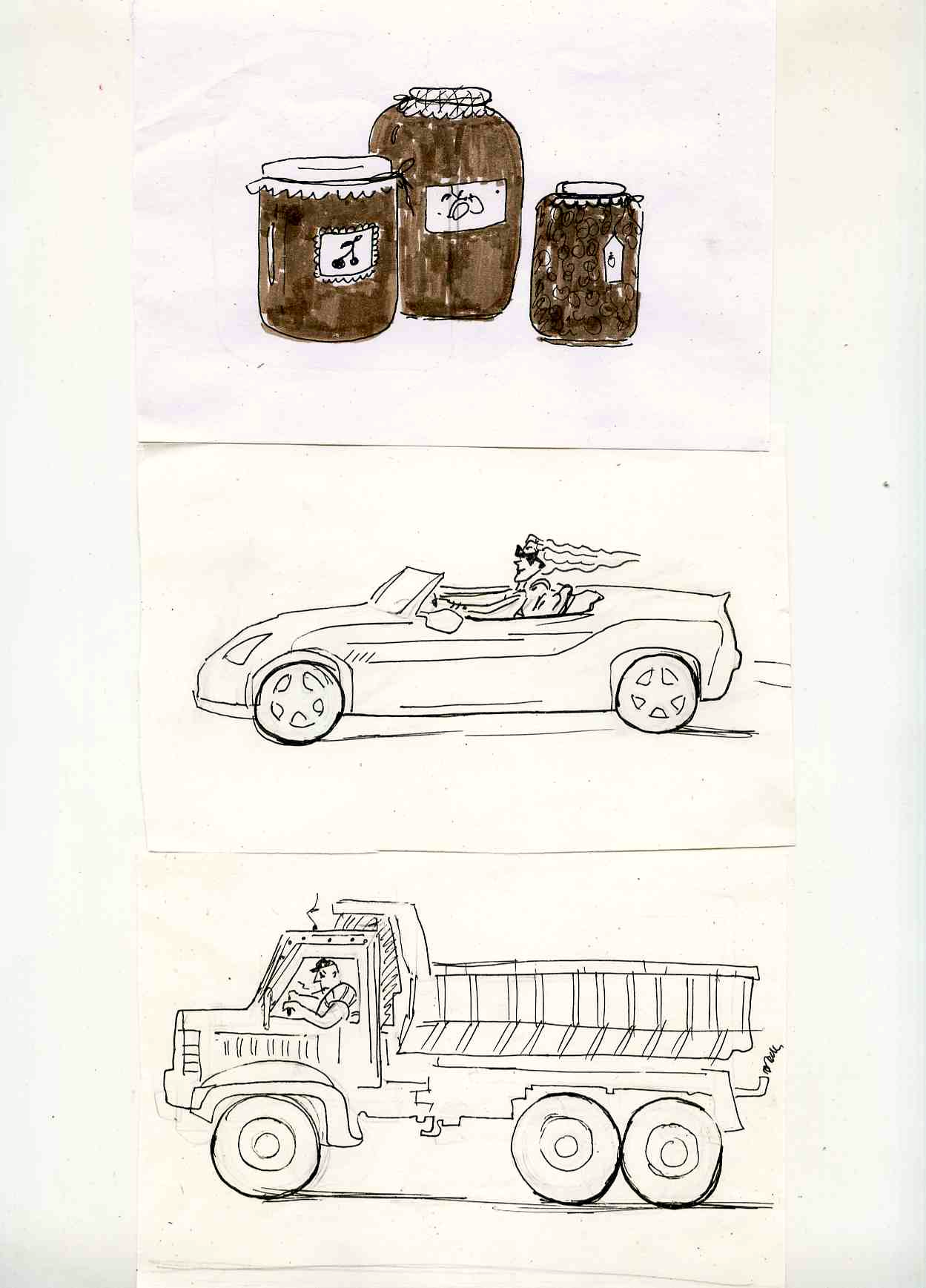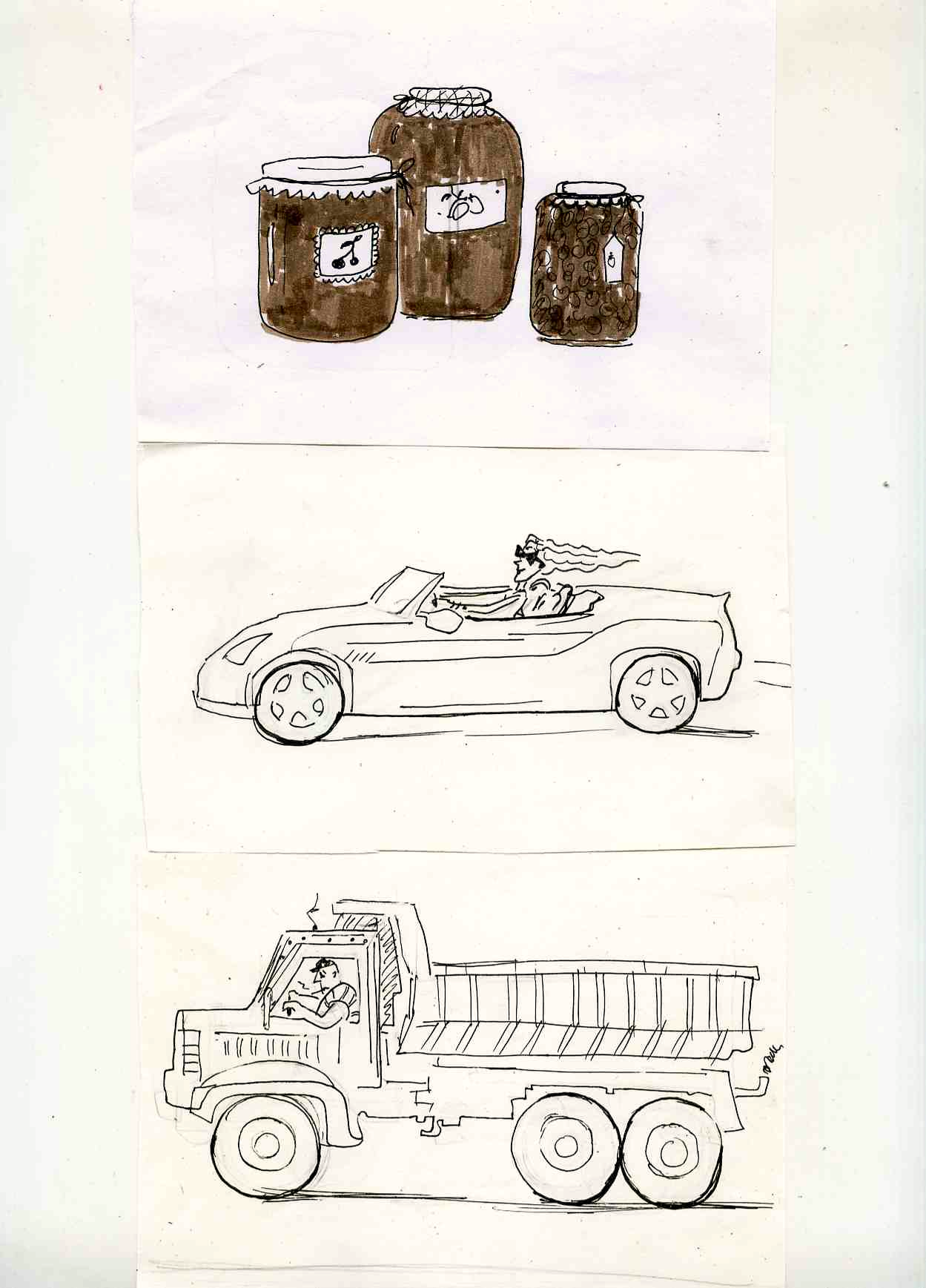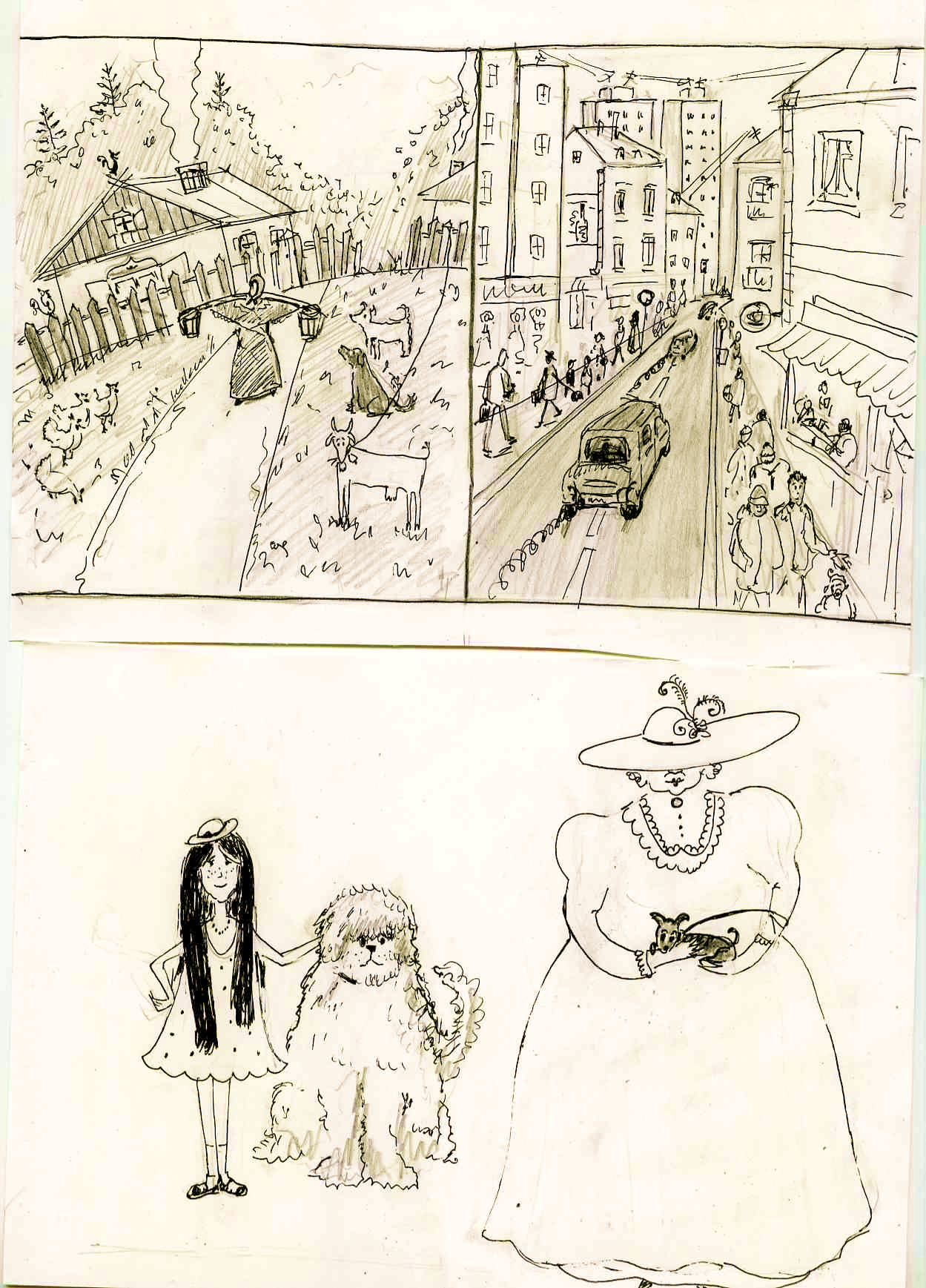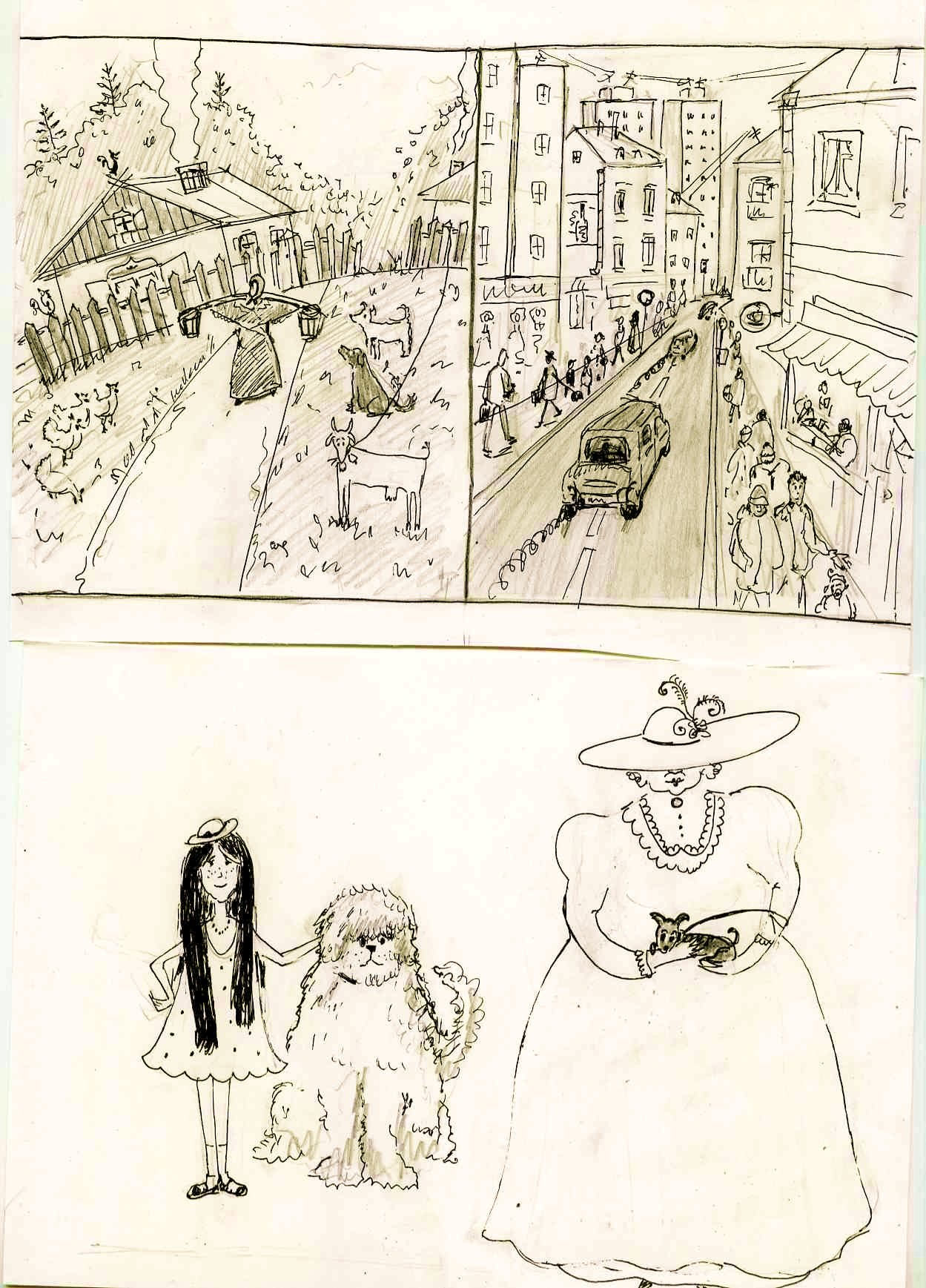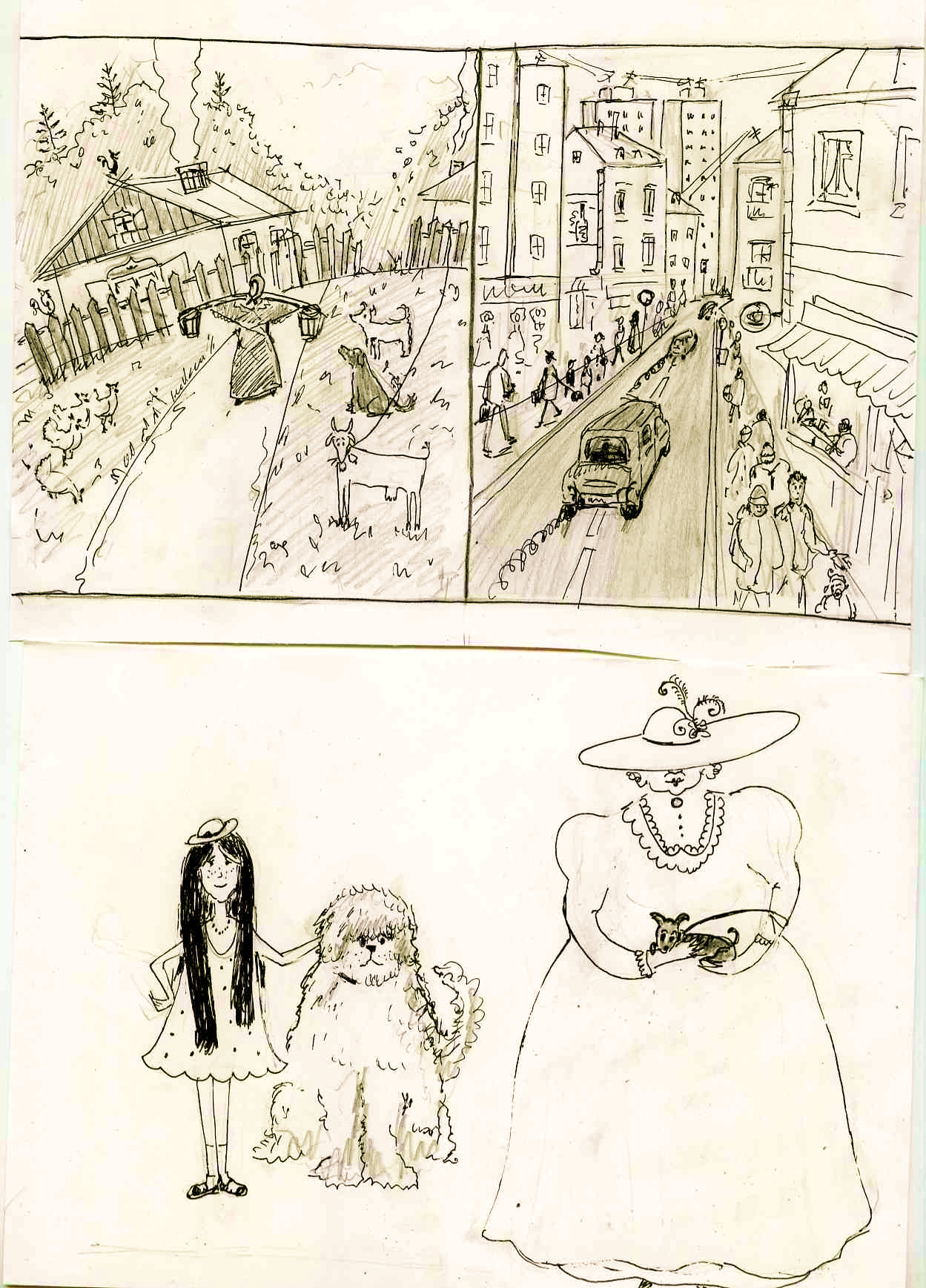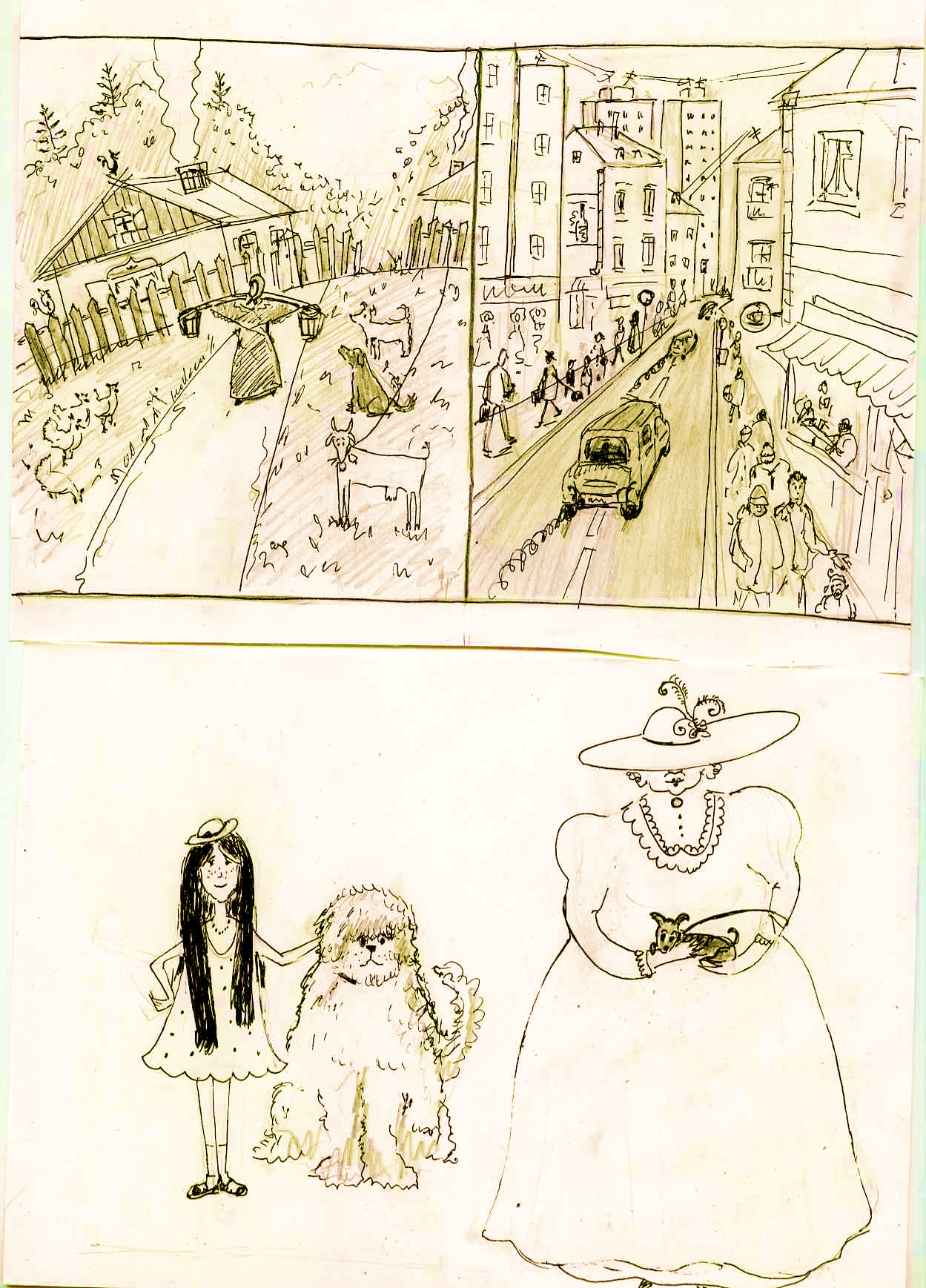ВУЗ: Не указан
Категория: Не указан
Дисциплина: Не указана
Добавлен: 06.09.2024
Просмотров: 122
Скачиваний: 0
Language use and communication
Exercise 24. Compare using much + a comparative and not nearly as … as … (VI, VII)
Thailand (hot) Ireland
Mexico City (big) Munich
Greek culture (ancient) Roman culture
historical novels (interesting) science fiction
the Statue of Liberty (high) the Nelson Column
hamburgers (bad) paella
a holiday in early spring (good) a holiday in late autumn
bananas (sweet) pears
leather boots … rubber boots
children … adults
Exercise 25. Compare in as many ways as possible.
Exercise 26. Compare two cities or towns using all the comparative patterns.
Talk about:
the streets: clean, dirty, wide, busy …
the buildings: modern, high, beautiful …
the climate / the weather: warm, cold, rainy, windy …
the people: polite, friendly, hospitable, wealthy, poor, happy, busy …
the city / town in general: big, noisy, polluted, interesting, exciting, noisy …
Exercise 27. a) Do the QUIZ.
Which is the highest mountain? A) Everest B) Kilimanjaro C) Mont Blanc
Which is the longest river? A) the Amazon B) the Mississippi C) the Nile
Which is the smallest country? A) Lichtenstein B) Vatican City C) Monaco
Which is the fastest animal? A) ostrich B) antelope C) cheetah
Which is the most spoken language? A) Chinese B) English C) Russian
Which is the deepest ocean? A) the Pacific B) the Atlantic C) the Arctic
Which is the largest lake? A) the Michigan B) the Caspian Sea C) the Baikal
b) At home make up a similar quiz. Let the other students do it.
Exercise 28. a) Put the words in brackets in the superlative degree.
It’s one of … (good) places to eat in.
It’s one of … (big) parks.
It’s one of … (old) buildings.
It’s one of … (expensive) shops.
It’s one of … (bad) areas.
It’s one of … (beautiful) streets.
It’s one of … (nice) bits.
It’s one of … (relaxing) bits.
b) Think what places in Moscow (or any other city or town) you could describe
using these sentences.
c) In pairs. Share your information with the partner.
Example: – Our VGIK cafeteria is one of the best places to eat in.
– Thanks for telling me.
Exercise 29. Match the sentence-halves to make whole phrases. (VIII)
the longer the flight a. the more things you want
the more one reads b. the more you have to pay
the earlier I get up c. the more fluent your English becomes
the more things you have d. the more experienced you become
the fewer classes you miss e. the sooner I leave
the more you speak f. the more one learns
the more films you shoot g. the better your tests
Exercise 30. Make up mini-dialogues and then act them out. (VIII)
Is it all right if I bring a friend to your party?
When should I start?
I’m sorry, I’m late. Family emergency.
Which do you want to buy?
What time do you expect us?
The cheaper, the better. I don’t see much difference.
The sooner, the better, really.
The later, the better, to be honest. At least, not before 6.
The more, the merrier.
It’s all right. Better late than never.
Exercise 31. a) Complete in ways that are true for you. (VIII)
As for … , from my point of view, the more modern, the better.
As for … , personally, I think the cheaper, the better.
As for … , in my opinion, the less you think about it / them, the better.
As for … , if you ask me, the more, the better.
b) In pairs. See if you agree with your partner. When discussing it, use
the following expressions:
I agree with you on this one.
I’m not so sure about this one.
I agree up to a point, but on the other hand …
Exercise 32. a) Translate the following proverbs into Russian and learn them.
Better late than never, but better never late.
Say well is good, do well is better.
Those do least who speak most.
East or West home is best.
It’s better to see once than to hear twice.
A good name is better than riches.
The busiest men find the most leisure.
The pen is mightier than the sword.
Better an open enemy than a false friend.
b) In pairs. Close the left column and translate the word combinations from Russian into English.
|
younger than his friend |
моложе своего друга |
|
two years older |
на два года старше |
|
better late than never |
лучше поздно, чем никогда |
|
sooner or later |
рано или поздно |
|
more or less |
более или менее |
|
worse than usual |
хуже, чем обычно |
|
better than usual a simpler manner |
лучше, чем всегда более простая манера |
|
the greatest comedian |
величайший комик |
|
the oldest actor |
старейший актёр |
|
the worst defect |
худший недостаток |
|
a more popular actress |
более популярная актриса |
|
less important facts |
менее важные факты |
|
a less talented director |
менее талантливый режиссёр |
|
much earlier |
гораздо раньше |
|
much stronger |
гораздо сильнее |
|
much better |
гораздо лучше |
|
much more |
гораздо больше |
|
much more interesting |
гораздо интереснее |
|
much more talented |
гораздо талантливее |
|
one of the best cameramen |
один из лучших операторов |
|
the youngest performer |
самый молодой исполнитель |
|
the most serious test |
самое серьёзное испытание |
|
the most brilliant talent |
самый блестящий талант |
|
the sooner, the better |
чем скорее, тем лучше |
|
the harder, the more interesting |
чем труднее, тем интереснее |
|
as beautiful as |
такой же красивый, как |
|
as helpless as a child |
беспомощный, как ребёнок |
|
not so experienced as |
не такой опытный, как |
|
not so famous as |
не такой знаменитый, как |
Reading and communication
Exercise 33. a) Discuss the following questions:
What are the advantages and disadvantages of being an actor?
Do you agree that it is bad that actors have to play in TV shows to make money?
Who is your favourite actor?
Are Russian actors better than American ones?
Do you know any Russian actors who are famous worldwide?
b) Read the article and find the following word combinations:
принять участие в съёмке;
крупный план;
согласиться с трактовкой роли;
воплотить режиссёрский замысел;
выразить идею режиссёра;
описать процесс съёмки;
объяснить цели;
контрастный грим;
широкий жест;
краткие указания;
регулировать свет;
занимать экран;
репетировать движения и текст роли;
быть удовлетворённым актёрским исполнением.
Film Acting
A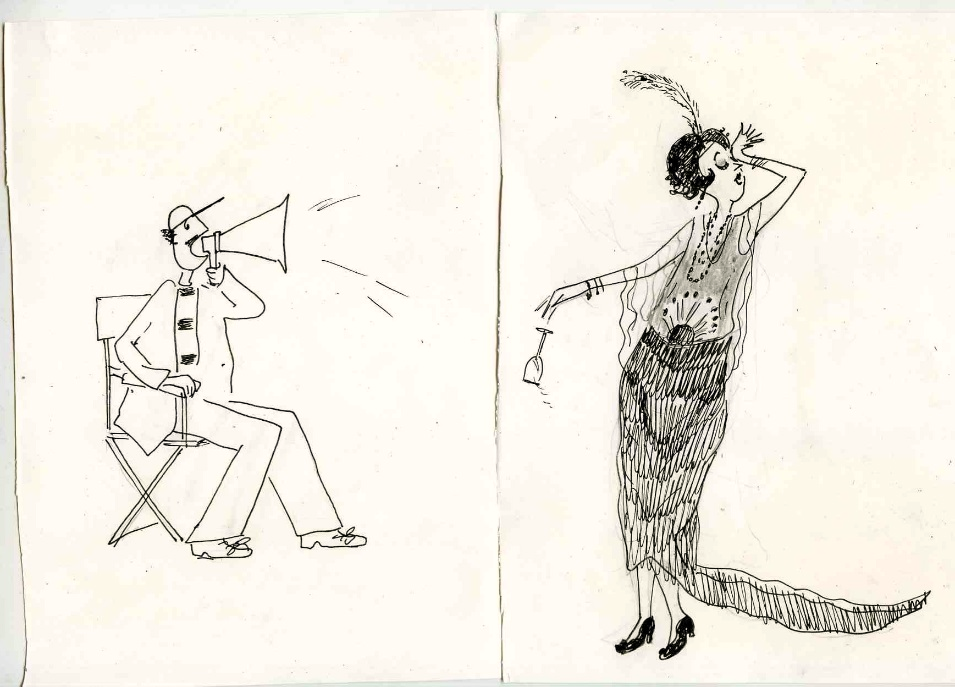
The work of a film actor is different from that of the stage actor. All that is essential and effective on the stage – the wide gesture, the contrasting make-up, the declamatory style of speech – becomes false, ridiculous on the screen. The cinema has great advantages over the theatre because it enables the spectator to see tiny details in a close-up and hear shades of intonation.
B
The actor, who is cast for the role after numerous tests, reads the script and his lines. The director explains to him his aims, tells him, what he expects from him, introduces him to the atmosphere of the story, the character of the role and its reality. A good actor must give his own interpretation of the part, but it has to be an interpretation the director agrees with. The actor must see all his role in his mind and not only the little fragment he is taking part in at the moment. A good actor tries to embody the director’s conception of the character, to express the director’s idea through his own individuality, to enrich his portrayal of the character by his own observation of life and imagination.
C
This is how Rene Clair describes the process of film shooting: “The shooting of every fragment of a scene is done in the following manner. The actor receives a few brief instructions from the director and goes through the movements the director asks him to perform. During that time the director of photography has the camera placed in such a way as to follow the actor in his movements. While the electricians under the cameraman’s control regulate the lights, the actor rehearses his movements and lines. When the director is satisfied with his performance and the sound engineer manages to have at least one rehearsal in complete silence, when the director of photography finally regulates the last spot lights, then everybody is ready for the shooting. “Action!” The shooting begins. Usually the director takes a scene several times. It can happen that a fragment, which took a whole day’s work to shoot, may occupy the screen just for a few seconds.”
c) Which paragraph mentions the following?
how each piece of a movie is shot
what a skillful actor tries to do
a practice session with no sound at all
things that look silly on the screen
using life experience while acting
the film director sharing his expectations
long hard shooting and short appearance on the screen
something cinema gives to its audience
d) Follow-up discussion.
Do you know film directors who play in their own movies? Are they better actors or film directors? What actors do you think could teach you something?
Vocabulary
Exercise 34. Match the words in the columns to form phrases.
|
declamatory brief essential effective ridiculous contrasting tiny his own whole false active rich |
style manner instructions detail contribution make-up treatment intonation conception participation imagination supervision |
Exercise 35. Give English equivalents of the words in brackets.
1. The actor usually gives (свою собственную) interpretation of the character. 2. (Крупный план) is a great advantage of the cinema. 3. The actor has to use all his (во-ображение) and observation of life to (выразить) the director’s (замысел). 4. (Каждое движение) of the actor must be expressive. 5. Actors (репетируют) their lines before the (съёмки). 6. (Зрители) like to see movies on the wide screen.
